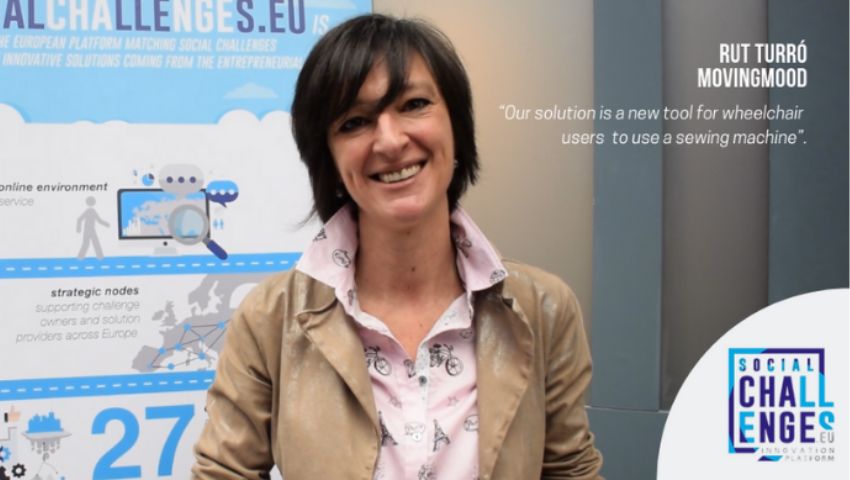Disability is a universal phenomenon. People with disabilities have a high unemployment rate, 65% in the European Union alone, with a cost of over €400 million for governments. The main cause of this problem is the lack of adaptation to jobs, often a barrier to entry.
New technologies are an essential tool for improving the lives of people with disabilities. Aware that there was a growing community of makers working with digital technology (3D printing, robotics, etc.), MakersSpace (challenge owner) challenged them to find solutions for the problems disabled people face every day via the Social Challenges Innovation Platform.
The challenge was launched in Budapest, although the winning solution came from Barcelona. From the cosmopolitan capital of Spain’s Catalonia region, Rut Turró, a fashion & development entrepreneur, designed a sewing machine adaptation for wheelchair users.
‘Our solution is a new tool, an adaptation for sewing machines and wheelchair users. The users can be designers, entrepreneurs, they can work with industry, and it’s a new opportunity for jobs, for employment that didn’t exist before,‘ says Rut.
Rut’s 3-D printed product means that, rather than pushing foot pedals to power a sewing machine, people with disabilities and those bound to wheelchairs can use their arms instead.
Already established in Spain, the founder of Moving Mood has now signed a collaborative agreement with Poland and she will soon expand to Slovenia and Mexico. At the Industry Days in Brussels, where some of the Social Challenges participants pitched in front of investors, Italian investors also expressed their interest in Moving Mood.
“Thanks to Social Challenges Innovation Platform we could develop this new tool and now we are growing all over Europe“, says Rut.
This example shows how challenge-based innovation is a win-win for cities but also for entrepreneurs!
Written by Pablo Munilla for Social Challenges Innovation Platform

